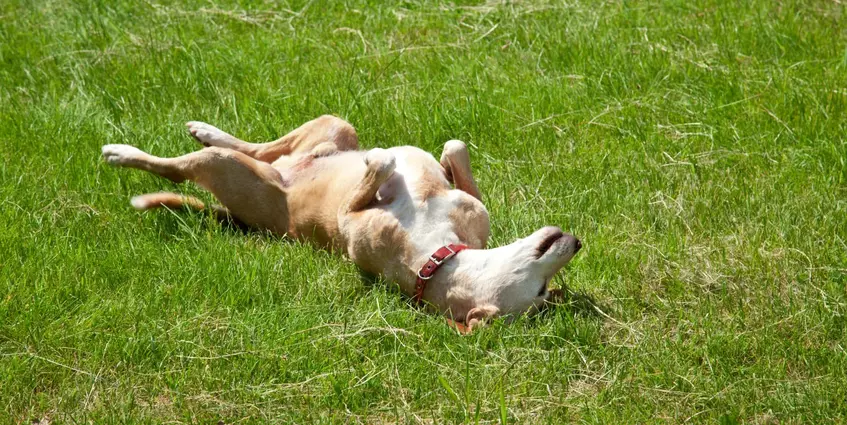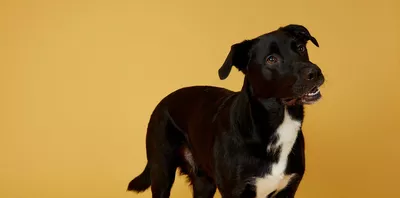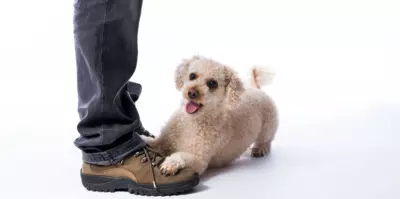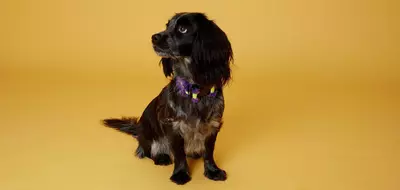Why Do Dogs Roll In Poop?
- 15 Aug 2023
- 4m read

Dogs are fascinating creatures with behaviours that sometimes leave us scratching our heads in bewilderment.
One such baffling behaviour is rolling in poop. While this might be one of the more unpleasant behaviours that our furry friends engage in, there's actually a fascinating evolutionary explanation behind it.
In this article, we'll delve into the reasons why dogs roll in poop and provide you with effective strategies to prevent this less-than-pleasant habit.
Why Is My Dog Suddenly Rolling in Poop?
Sudden onset of this rather unseemly behaviour can be frustrating. It helps to understand the root cause of why your dog may be suddenly rolling in poop, so that you can take steps to prevent it:
Ancient instincts
Rolling in strong-smelling substances, including poop, was once a survival tactic for dog’s to mask their own smell and potentially deceive predators or prey. While your pup may no longer need to outsmart predators, this instinctual behaviour can still be triggered when encountering unfamiliar scents.
Communication and social bonding
Dogs are social animals, and they communicate with each other through a complex combination of body language and scent cues. Rolling in poop might seem repulsive to us, but it's a way for dogs to carry the scent of the environment back to their family. This behaviour could have served as a form of non-verbal communication, helping dogs share information about their surroundings and experiences.
They enjoy it
Whilst we may find the thought of rolling poop rather unpleasant, for dogs it can often be the highlight of their day. There doesn’t always have to be a complex explanation for why dog’s engage in certain behaviours, sometimes it’s simply because they’re having fun.
How to Stop a Dog From Rolling in Poop
Rolling in poop is pretty gross and we get why you want to try and prevent it, here’s a few actions you can take to make your dog think twice:
Supervise and redirect
If your dog has a tendency to roll in poop, especially during walks, it's crucial to keep a watchful eye on them. When you notice them showing interest in poop or similar unpleasantries, try to distract them with a treat or one of their favourite toys.
Positive reinforcement
Reward your dog for good behaviour. Whenever they encounter poop and choose not to roll in it, offer them praise, treats, or playtime. Positive reinforcement helps reinforce the idea that avoiding poop leads to positive outcomes.
How to Clean Dogs That Have Rolled in Poop
If your pooch has indulged in this smelly pastime, you’re probably wondering how to clean them up without any fuss. Don’t worry, we’ve got a simple guide to help you get your dog back to their clean, fresh-smelling self.
Here's how to tackle the aftermath of their little adventure:
1. Gather your supplies
Here’s what you’ll need:
A pair of gloves (trust us on this one)
A natural, coat-friendly dog shampoo (look for one that’s gentle and free of harsh chemicals)
Towels
A brush
2. Remove the worst of the mess
Before you dive into the bath, wipe off as much of the mess as possible with paper towels or a cloth, try not to rub it into their coat.
3. Rinse thoroughly
Use lukewarm water to rinse your dog, focusing on those smelly areas. Whether it’s in the bath or with a hose outside, make sure to soak their coat fully before adding shampoo.
4. Lather up with a natural shampoo
Choose a natural shampoo that suits your dog’s coat type. Whether your pup has sensitive skin, a sleek coat, or fluffy fur, there’s a shampoo out there to meet their needs. Gently massage it into their fur, making sure to target all the mucky spots. If they’ve really gone for it, you might need to shampoo twice. And don’t furget those paws.
5. Rinse, rinse, and rinse again
Rinse out all the shampoo thoroughly. Leftover soap can irritate your dog’s skin, and we don’t want that. Keep rinsing until the water runs clear.
6. Dry off
Wrap your pooch in a soft towel and give them a good rub down. If your dog isn’t afraid of a low-setting, pet-safe hairdryer, you can use that too. Just make sure they’re nice and dry to avoid any lingering damp dog smells.
7. Smell still lingering? Try vinegar
If there’s still a little stink hanging around, a diluted solution of apple cider vinegar and water can help neutralise the odour naturally. Just spritz it onto the affected areas, then rinse off.




.png)